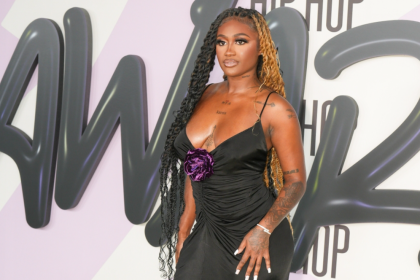Lizzo will never be “considered thin” — even after losing weight. The Grammy-winning artist’s candid discussion comes amid growing conversations about body positivity in the entertainment industry.
The 36-year-old pop star, whose real name is Melissa Viviane Jefferson, revealed on Saturday, Jan 25, that she has lost 16 percent body fat thanks to a recent health kick but insisted that she will always be “morbidly obese”, according to the rule of thumb known as the Body Mass Index scale. The BMI scale, developed in the 1830s, has faced increasing criticism from medical professionals for its oversimplified approach to health assessment.
“Even at the end of my weight loss journey, I’m not going to be considered thin, by any means. I will still be considered morbidly obese on the BMI, and little bros on the internet are still going to call me big backed. But I will be happy,” she said speaking in a video posted to Instagram. Her message resonated with millions of followers, garnering more than 2 million likes within 24 hours.
But Lizzo reminded her followers that her recent achievements in weight loss show that any goal in life can be accomplished as long as the work is put in. This perspective aligns with health experts who emphasize the importance of sustainable lifestyle changes over quick fixes.
“And I am happy!” she added. “Let this be a reminder that you can do anything you set your mind to. Now, I guess it’s time to set new goals.” Her positive approach to health and wellness has inspired countless fans to embrace their own fitness journeys.
Throughout 2024, the singer had been documenting her wellness journey and 100-pound weight loss for fans on social media but hit back at one follower who suggested that she had turned to Ozempic to shed the pounds. Ozempic, primarily a diabetes medication, has become increasingly controversial for its off-label use as a weight-loss drug.
She posted the person’s comment on her Instagram alongside another post sharing their profile. The interaction sparked a broader discussion about society’s assumptions regarding weight loss methods and body transformation.
“‘oZeMpIc oR cOkE? (four crying face emojis),” Lizzo said the fan had asked her, writing in the caption. Her response highlighted the ongoing stigma and speculation that often surrounds public figures’ weight loss journeys.
She then uploaded videos of herself in the same carousel of images showing her wearing a red bathrobe. The videos showcased her confidence and demonstrated her commitment to transparency about her fitness journey.
She captioned one of the clips: “When you finally get Ozempic allegations after 5 months of weight training and calorie deficit.” Her workout routine reportedly includes a combination of strength training, cardio, and mindful eating practices.
Lizzo also joked the allegations she was on diabetes drug Ozempic or cocaine to lose weight were “like a reward” after she has spent months in the gym. Her humor in addressing these accusations reflects her characteristic approach to handling public scrutiny.
The singer’s journey comes at a time when the fitness industry is experiencing a significant shift toward more inclusive and holistic approaches to health. Studies show that sustainable weight loss is most effectively achieved through lifestyle changes rather than medication or extreme measures.
Lizzo‘s openness about her health journey has contributed to important discussions about body image, health standards, and the complexity of weight loss in the public eye. Her experience highlights the ongoing challenges faced by individuals who don’t conform to traditional beauty standards, even while pursuing health goals.
Health experts note that the focus on BMI as a sole indicator of health is increasingly outdated, with many advocating for more comprehensive approaches to assessing overall wellness. Recent research suggests that factors such as body composition, cardiovascular fitness, and metabolic health are more reliable indicators of overall health than BMI alone.
















